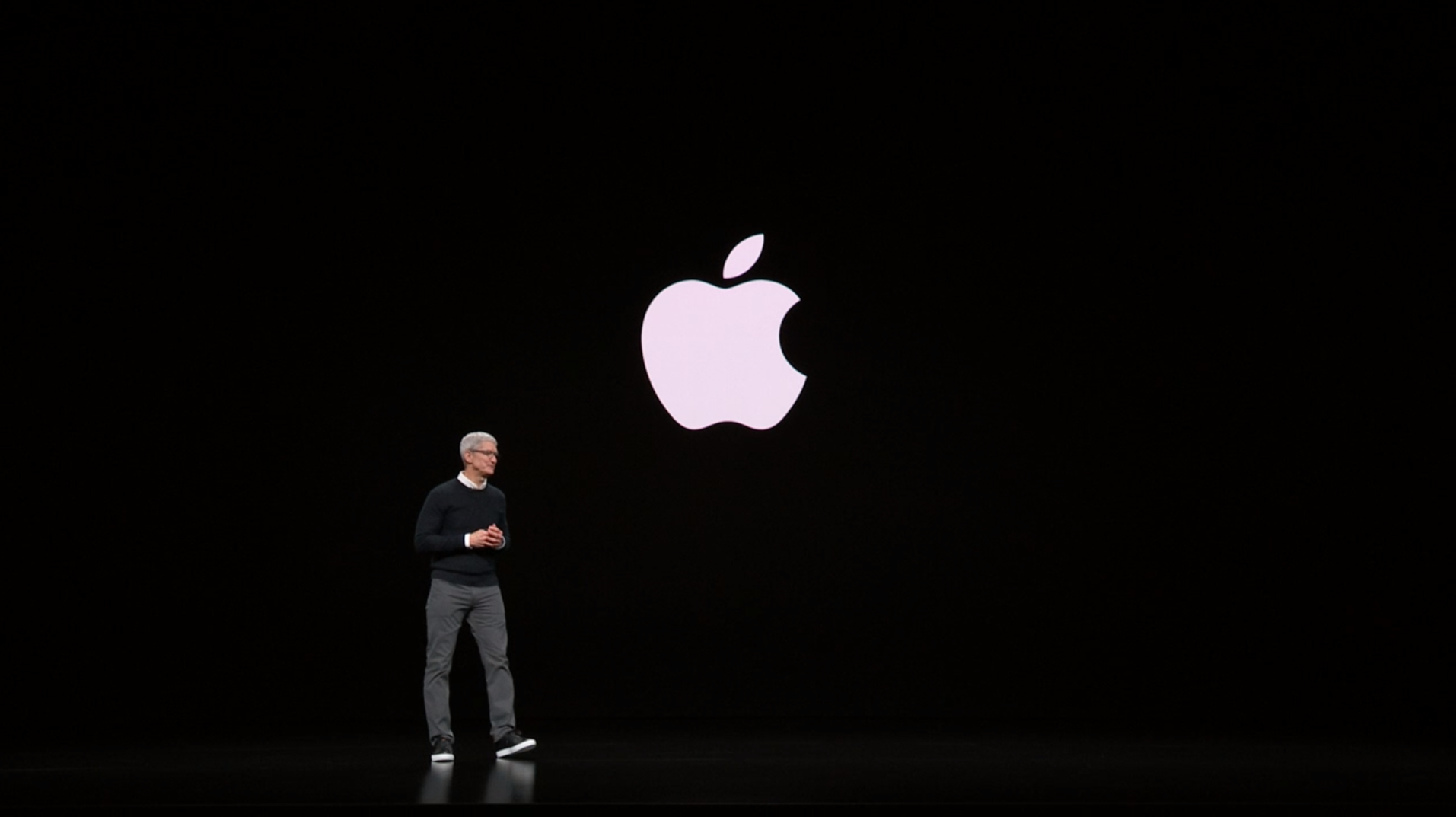- Apple on Monday announced its long-anticipated TV service, news service, and gaming subscription service, among other new products.
- It’s a critical move for Apple as it seeks to find new revenue streams to offset slowing iPhone sales.
- Its success could depend on whether the company can change its public perception from being primarily a hardware-first company to a media and entertainment powerhouse.
Each September throngs of technology journalists gather in California to witness Apple’s biggest announcement of the year: the debut of the newest iPhones. Now held at the Steve Jobs Theater on its Apple Park campus, Apple’s fall events have become the barometer by which many pundits evaluate whether how much innovation the company has left in the tank.
Even Apple’s Spring events, where it’s traditionally unveiled new iPads, have followed a similar pattern, though usually without quite as much flash.
But on Monday, Apple held a different kind of presentation. There were no flashy tech demonstrations, no crowded showroom mobbed with journalists eager to write about their first experience using Apple’s newest devices. Familiar faces like Eddy Cue, Apple’s senior vice president of internet software and services, and Craig Federighi, Apple’s senior vice president of software engineering, were nowhere to be seen onstage.
Instead, it made a barrage of announcements about new subscription services the company is launching in a move to keep existing customers embedded in its ecosystem while drawing in new ones. It’s an increasingly important move for Apple as sales of its biggest moneymaker – the iPhone – are in decline. Apple revealed in its January earnings report iPhone sales revenue declined by 15% compared to the year prior, while its services business grew by 19%.
The company trotted out top-tier actors, filmmakers, and TV personalities like Oprah, Steven Spielberg Steve Carell, Jennifer Aniston, Reese Witherspoon, and J.J. Abrams to discuss the new exclusive series they're working on for Apple's new entertainment service, Apple TV Plus, which is coming this fall. Apple is also making it possible for Apple TV app users to subscribe to channels like HBO, CBS All Access, or Starz à la carte as well, and its launching the Apple TV app on smart TVs from the likes of Samsung and Vizio, as well as Roku and Amazon devices.
Before that, it showcased Apple News Plus, a subscription news program that offers access to 300 magazines, newspapers, and digital outlets with a redesigned interface specifically for magazine content. It's also launching a game service called Apple Arcade that lets Apple device owners play more than 100 games exclusively designed for the platform across iPhones, iPads, Macs, and Apple TVs. And Apple's new credit card, appropriately called Apple Card, is built directly into the Wallet app on your iPhone.
Different from the start
It was clear from the beginning that this would be a very different type of Apple event.
"For decades, Apple has been creating world-class hardware and world-class software," Apple CEO Tim Cook said on stage at the start of the event. "We've also been creating a growing collection of world-class services. And that is what today is all about."

Taken together, these announcements signal that Apple isn't satisfied with just owning the hardware and software experience - it wants to play a bigger role in the apps and services we're using on its devices, too.
It's a pivotal moment for Apple, as it seeks to change its public perception from being primarily a hardware-first company best known for its iPhones, iPads, and Macs to being a media and entertainment powerhouse. The success of these services could depend on how well Apple is able to do make that transition.
The default advantage
Of course Apple has a huge advantage in the 1.4 billion active iOS devices it has operating around the world. It's scale noteworthy enough that Oprah commented on it onstage as a reason to partner with Apple.
Apple Music is evidence that having the opportunity to distribute your service on 900 million smartphones around the world can yield success. Longtime Apple analyst and Loup Ventures managing partner Gene Munster estimated in September that Apple was converting subscribers into paid customers at more than twice the rate of Spotify. Apple News, which comes preinstalled on iPhones, iPads, and Macs, is now the No. 1 news app with over 5 billion articles read each month, Cook said during the event.

But Apple's move into television comes at a time when consumers are already overwhelmed with options from players like Netflix and Hulu in addition to other tech firms that have also launched their own cord-cutting services such as Google and Sony. Apple's entry into the video-game market with Apple Arcade will also be met with stiff competition from industry stalwarts like Microsoft and Sony, as well as newcomer Google.
There's more at stake for Apple than just its business interests. With smartphone sales stalling around the globe as customers are holding on to their phones for longer periods, Apple must find new avenues to preserve its reputation as an innovator. With most new smartphones from companies like Apple, Samsung, and Google offering only incremental changes, like more sophisticated cameras and better quality screens, it's clear that innovation is starting to happen elsewhere - specifically, in software and services.
Ultimately, the success of new services like Apple TV Plus and Apple Arcade will depend not just on the content Apple offers but also whether the company can make the experience better and more compelling than that of its competitors. It did this successfully with the iPhone in 2007 and again in more recent years with AirPods in 2016. Only time will tell if Apple's new services will have a similar effect.

